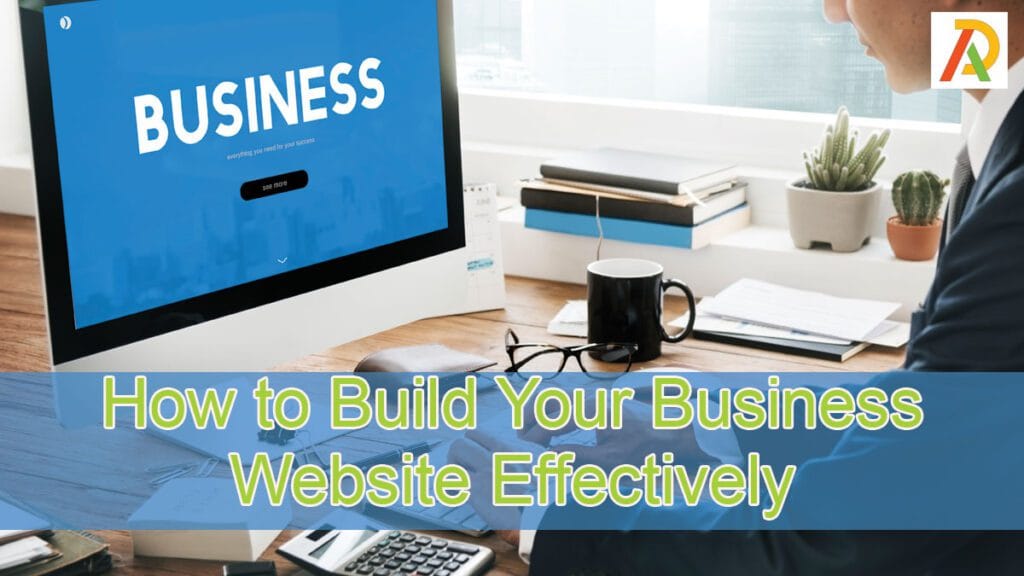How to Build Your Business Website Effectively

In today’s digital age, a business without a website is like a storefront hidden in a back alley. Your online presence is your global business card; it’s often the first interaction potential customers have with your brand. But where do you begin? Building a business website can seem daunting, especially if you lack technical skills. However, with the right approach, it’s achievable. Let’s break down the steps, from concept to launch, and demystify the process with practical advice and examples.
Understanding Your Website’s Purpose
Before you delve into domain names and design templates, it’s crucial to define the purpose of your website. Is it to sell products, provide information, or gather leads? For instance, an e-commerce site needs a secure checkout system, while an informational blog focuses on content management. Real-life example: ‘BrewBean Coffee started with an objective to sell organic coffee beans online, resulting in a user-friendly e-commerce website that highlights their unique selling points and facilitates easy purchasing.
Choosing the Right Domain Name
Your domain name is your digital address; it’s how customers find you online. It should be memorable, easy to spell, and reflect your business. Consider using keywords related to your industry to improve search engine optimization (SEO). For example, ‘EcoCleaners.com’ instantly informs customers about the nature of the business and is SEO-friendly.
Selecting a Business Website Builder or Platform
There are numerous website builders and platforms available, such as WordPress, Wix, or Squarespace, each with its advantages. WordPress, for instance, powers over 39.5% of all websites due to its flexibility and scalability. Consider ‘The Crafty Canvas,’ an art supplies store that utilized WordPress to integrate an online shop with their blog, creating a robust online presence that scales as their business grows.
Planning Your Website’s Design and User Experience
Your website’s design should align with your brand identity. It’s not just about looking good; it’s about creating a positive user experience (UX). Easy navigation, fast loading times, and mobile responsiveness are key. Take ‘FitGear,’ a fitness equipment retailer: They redesigned their site for intuitive navigation, resulting in a 25% increase in time on site and a drop in bounce rates.
The Importance of Quality Content
Content is the cornerstone of your website. It communicates your brand message and engages your audience. Whether it’s product descriptions, blog posts, or a company bio, ensure it’s well-written and adds value. For example, ‘Green Thumb Gardens launched a blog within their website that shares gardening tips, driving more traffic and establishing them as industry experts.
Integrating E-commerce Functionality (If Applicable)
If selling online is a goal, your website must have e-commerce functionality. This includes shopping carts, product pages, and payment processing. Security is paramount. ‘Homestyle Bakery’ implemented an SSL certificate for secure transactions, inspiring customer confidence and protecting sensitive data.
Optimizing for Search Engines
SEO is vital for making your website visible in search engine results. Use relevant keywords, meta descriptions, and title tags. For instance, ‘TechTrend Innovations’ optimized their site for the keyword’ latest tech gadgets,’ ranking them on the first page of Google results and significantly increasing organic traffic.
Testing and Launching Your Business Website
Before going live, test your website on different devices and browsers to ensure functionality. Gather feedback and make necessary adjustments. ‘Adventure Outfitters’ conducted a beta test with their loyal customers, who provided valuable insights leading to a smooth launch.
Maintaining and Updating Your Website
Post-launch, website maintenance is key. Regularly update content, check for security vulnerabilities, and analyze visitor data to optimize performance. ‘Creative Minds Agency schedules monthly reviews of their site, ensuring it remains up-to-date and secure.
Conclusion: The Journey of Building a Business Website
Building a business website is a journey from conceptualization to realization. By understanding its purpose, choosing a fitting domain, selecting the right platform, focusing on design and UX, producing quality content, and integrating necessary functionalities, you can create a website that not only looks great but also performs well. Remember, a website is never truly finished; it evolves with your business. With dedication and the right approach, your website will become an invaluable asset to your business.


